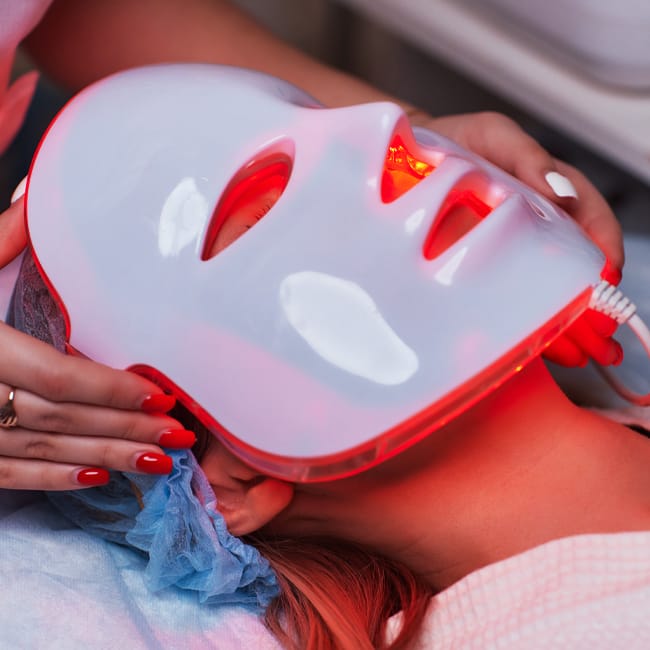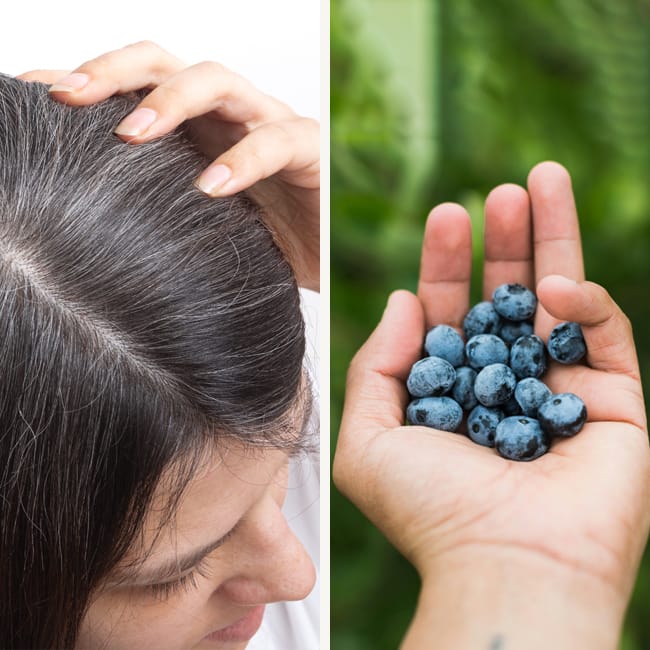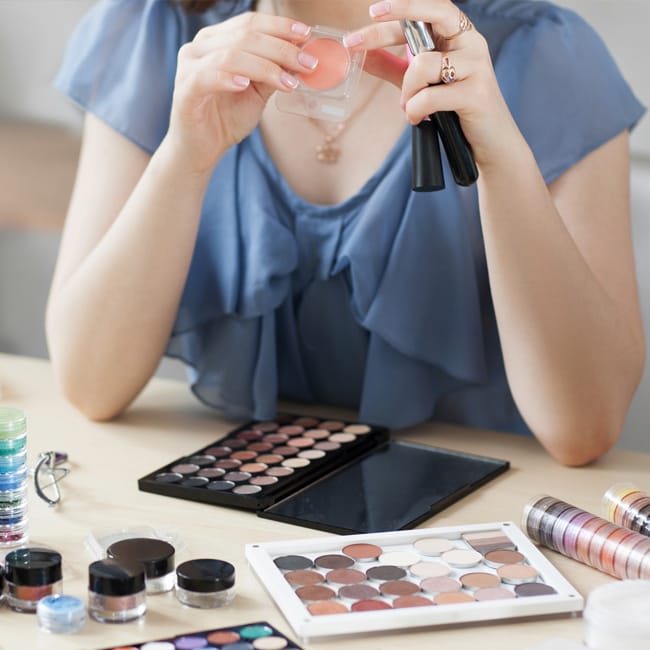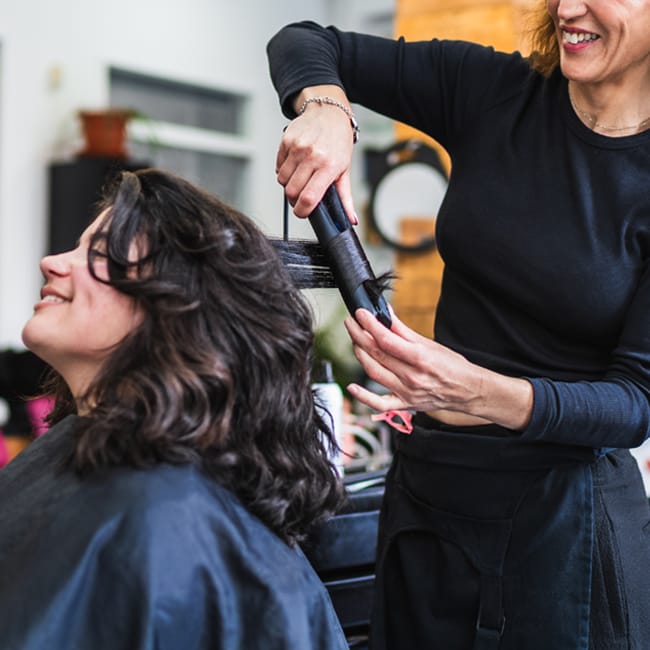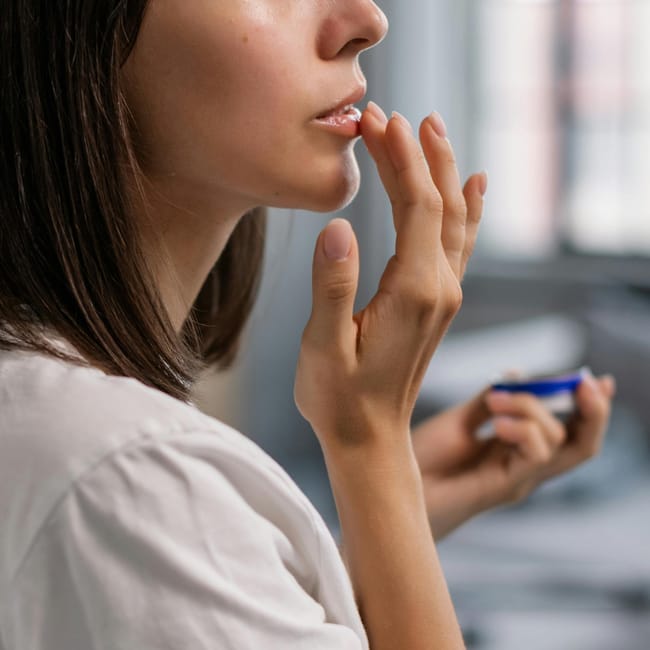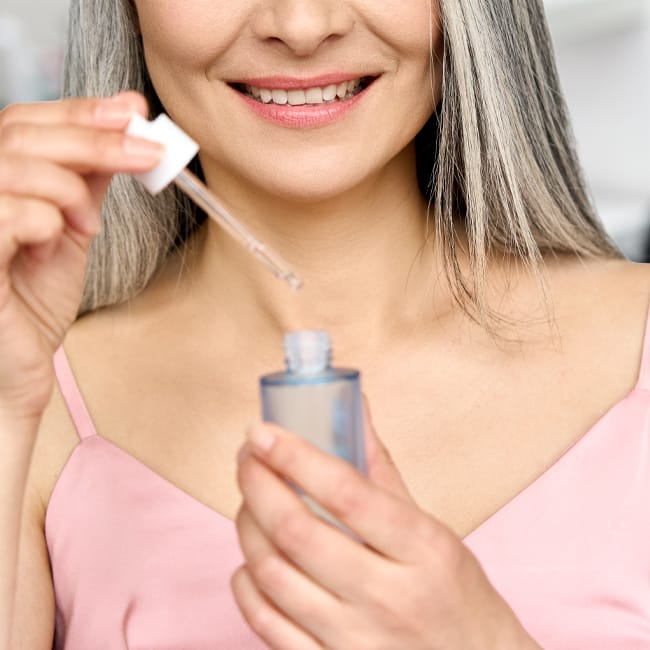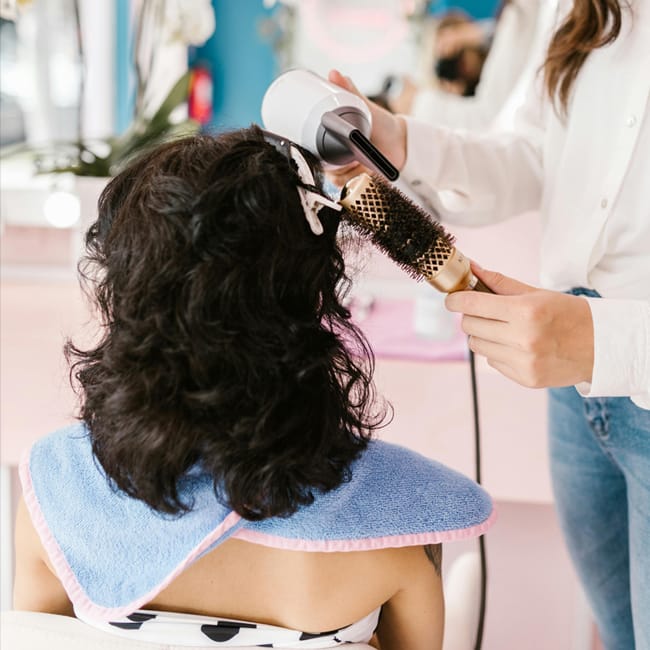If you’re aiming to enhance your skincare routine, adding a serum is a smart decision. These powerful solutions are packed with concentrated ingredients that outperform those in regular moisturizers, making them an excellent addition to your daily care. Furthermore, you can tailor your serum choices to address your unique skin needs, whether it be dryness, fine lines, or uneven tone.
To assist in your selection, we spoke with certified dermatologists who highlighted four key anti-aging serum types and ingredients ideal for women over 40.

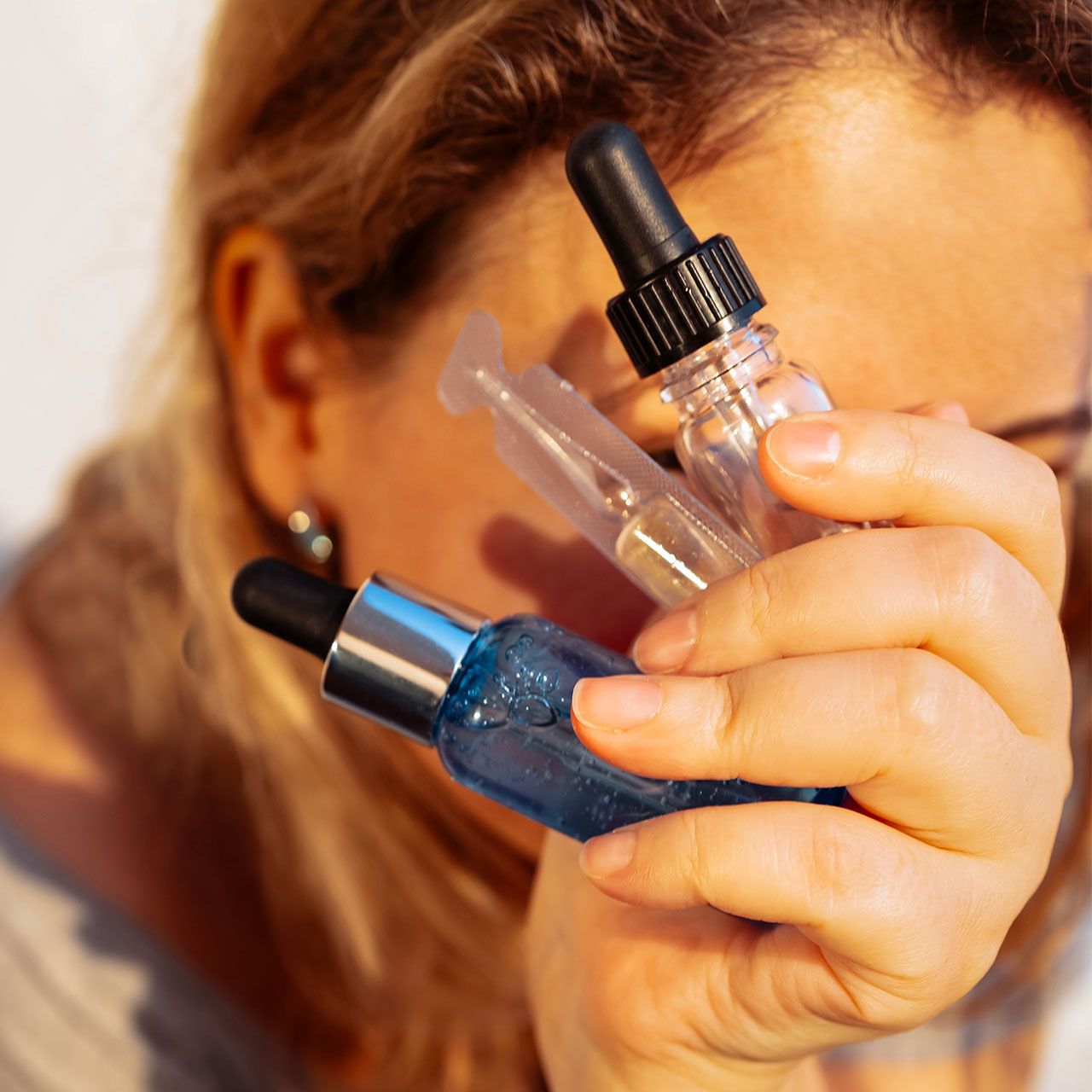
5 Essential Serum Types & Ingredients That Will 'Improve Hydration' In Aging Skin
1. Retinoids
As we grow older, our skin's firmness diminishes, leading to the formation of fine lines and wrinkles. With that said, Dr. Dendy Engelman (board-certified dermatologic surgeon at Shafer Clinic Fifth Avenue and Director of Dermatologic Surgery at New York Medical College) recommends adding retinoid and retinol serums to your skincare regimen.
"Retinoids, such as retinol or retinaldehyde, can help stimulate cell turnover and improve the appearance of fine lines and wrinkles," she notes. Dr. Jenelle Kim, skincare formulator and founder of JBK Wellness Labs, tells us that one of the most "important serums for anti-aging" is one that contains retinol.
"Retinol is a derivative of Vitamin A and is highly regarded for its anti-aging properties," she says. She adds that it "aids in reducing the appearance of fine lines, wrinkles, and uneven skin texture while promoting collagen production and cellular turnover."

2. Vitamin C
Dr. Anna Chacon, M.D., board-certified dermatologist and writer at My Psoriasis Team, points out that apart from natural aging, the "biggest contributing factor for sagging skin" is sun exposure. Overtime, "UV rays damage fibers in the skin called collagen and elastin, which causes the skin to sag," she stresses, "stretching it, and losing its ability to quickly snap back after stretching."
To help combat these effects and to protect your skin along with sunscreen, Kung recommends opting for a vitamin C serum in the morning. By using this ingredient right after cleansing your face and before applying sunscreen, you can target the following skincare concerns, including "discoloration, fine lines, wrinkles, and skin barrier repair," she says.
This, Dr. Elaine F. Kung, M.D., FAAD, board-certified dermatologist and founder of Future Bright Dermatology notes, is because "vitamin C is an antioxidant which helps protect us from UV and air pollutant skin damage." In addition, it functions as a "building block for collagen synthesis," which can help make your skin look less droopy and more plump when used daily.

3. Niacinamede
When frequently using a niacinamede serum, you'll probably notice a more glowy appearance overall, Kung says. "Niacinamide serums are helpful for your skin tone because they help regulate pigment and also help reduce redness," she says. Apart from helping combat skin discoloration, Kung also says that she finds this common serum ingredient to be "beneficial for other visible signs of aging," such as sagging and drooping, and wrinkling.
Niacinamide, she explains, is also known as vitamin B3, and helps to strengthen the skin barrier and prevent a loss of moisture which often leads to dry, dull-looking skin.

4. Glycolic Acid Serum
Skin firmness, plumpness, and elasticity are all characteristics of collagen, the vital protein. Stimulating its production is necessary for anti-aging skincare, and this can be done with the help of glycolic acid, Chacon says. Glycolic acid, a collagen-boosting skincare ingredient, brings about a range of beneficial effects on your complexion, she notes, from smoothing away wrinkles and lines to enhancing tone and texture.
"Glycolic acid is my favorite ingredient that is rejuvenating with anti-aging properties other than retinol," says Chacon, who notes that it is also a "skin brightener." She goes on: "I have many skincare products that contain it including cleansers, lotions, and serums. It has never stung my skin or caused irritation in any way."

5. Hyaluronic Acid
Chacon recommends applying a hyaluronic acid serum to freshly cleansed skin at night to give your skin an instantly more hydrated look. This ingredient, she says, helps "replenish and lock in moisture to the skin." Hyaluronic acid is "also generally safe for all skin types, and rarely has adverse skin reactions as it is a natural substance in the skin," Chacon continues.
This skincare classic also "functions as a humectant," Chacon points out, which means it "attracts moisture and draws it into your skin via its large molecules." This ultimately "prevents water loss by sealing the moisture in," and forms a "protective film on the skin to prevent vaporization."

The Bottom Line
With age, our facial skin naturally begins to wrinkle and lose its firmness. Thankfully, many dermatologist-approved skincare products and ingredients can help you maintain a smooth, glowing, and youthful look.
If you're new to anti-aging skincare and want to "boost hydration" and encourage cell renewal, starting with retinol, vitamin C, hyaluronic acid, glycolic acid, and niacinamide serums is highly recommended. Be sure to consult with your dermatologist to find the best options for your needs.










